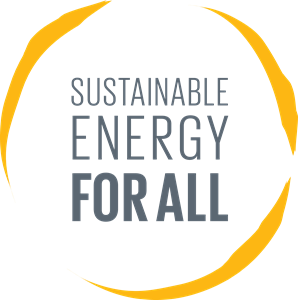Mobilizing finance to meet Indonesia’s renewable energy ambition – Difficult but not impossible


New research examines current finance for power sector, identifies up to USD 13.4 billion shortfall in annual investment for electricity generated from renewable energy
Power Sector Finance in Indonesia


VIENNA, Austria, March 04, 2022 (GLOBE NEWSWIRE) -- A new report by Sustainable Energy for All (SEforALL) and Climate Policy Initiative, with the support of HSBC, analyses Indonesia’s power sector to determine the finance needed for the country to meet its commitments under the Paris Agreement on climate change.
Paris Alignment of Power Sector Finance Flows in Indonesia: Challenges, Opportunities and Innovative Solutions finds an estimated investment need of up to USD 16.1 billion per year for electricity generated from renewable sources for Indonesia to achieve an 87 percent renewable energy mix by 2060 – the target set by Indonesia’s Ministry of Energy and Mineral Resources’s Net Zero Emission 2060 Scenario. Renewables accounted for only 14 percent of the energy mix in 2020.
Current tracked annual investments for renewables only reached USD 2.7 billion on average for the period 2015–2020, which falls far short of the estimated finance requirements for achieving the 2060 target of 87 percent renewables.
Meanwhile, there continues to be significant investment in fossil fuels in Indonesia, which is counter-productive to meeting the country’s emissions reductions targets and the development of renewables. Between 2015 and 2020, around USD 4.26 billion was disbursed annually for coal-fired, gas and diesel power plants in Indonesia, compared to only USD 1.73 billion per annum for renewable energy projects.
“Scaling deployment of renewable energy is key for countries to be compatible with the Paris Agreement and avoid the immense human and economic costs of climate change,” said Barbara Buchner, Global Managing Director at Climate Policy Initiative. “Both government and the private sector need to show increased commitment by investing in the clean energy transition.”
The report states that while Indonesia has recently announced plans to stop building new coal-fired power plants after 2023, these plants still contribute 50 percent (as of 2020) of the country’s installed electricity capacity, which means it will take a long time to phase them down, even with the national utility’s (PT PLN) aims to increase renewable capacity.
“Greater investments in renewable energy solutions are key for Indonesia to meet its ambitious renewable energy targets and to ensure a just energy transition for all,” said Tamojit Chatterjee, Energy Specialist at SEforALL. “Moving forward, innovative solutions will be needed to unlock finance for renewables that deliver new energy access to people and support the country’s plans for a low-carbon energy transition.”
Recognizing the need to catalyse investment in renewables, the report outlines a series of recommendations for financial institutions to support Indonesia’s energy transition:
Phase down coal financing for fossil fuel power plants to avoid stranded asset risk, given the 2023 Indonesia deadline for no new coal-fired power plants
Support initiatives that accelerate the decommissioning of coal-fired power plants.
Continue investments in renewables whilst scale lending in renewable energy infrastructure, such as deployment of smart grids, energy management systems, and transmission infrastructures.
Allocate a certain portion of investment portfolios towards low-carbon technologies and new business models (like EV, charging infrastructure, and battery exchange stations) through innovative financial mechanisms, blended financing, guarantees and credit enhancement.
Accelerate investments to various customer segments to finance energy-efficient technologies in new buildings and retrofits etc.
Integrate climate risk into credit assessments; climate stress testing of own lending portfolio; measurable and transparent decarbonization targets; and report progress to regulators and investors.
Advise clients on strategies to build a climate-resilient portfolio and facilitate a transition to low-carbon activities.
The report is available for download here.
Notes to editors
Contact
For further details on the reports or any interview requests, please contact: Sherry Kennedy, Sustainable Energy for All: Sherry.Kennedy@SEforALL.org / media@seforall.org or +43 676 846 727 237
About Sustainable Energy for All
Sustainable Energy for All (SEforALL) is an international organization that works in partnership with the United Nations and leaders in government, the private sector, financial institutions, civil society and philanthropies to drive faster action towards the achievement of Sustainable Development Goal 7 (SDG7) – access to affordable, reliable, sustainable and modern energy for all by 2030 – in line with the Paris Agreement on climate. SEforALL works to ensure a clean energy transition that leaves no one behind and brings new opportunities for everyone to fulfill their potential.
SEforALL is led by Damilola Ogunbiyi, CEO and Special Representative of the UN Secretary-General for Sustainable Energy for All and Co-Chair of UN-Energy. Follow her on Twitter @DamilolaSDG7. For more information, follow @SEforALLorg.
A chart accompanying this announcement is available at https://www.globenewswire.com/NewsRoom/AttachmentNg/6d59eb1e-1613-4ffb-996b-c743c4b43072

